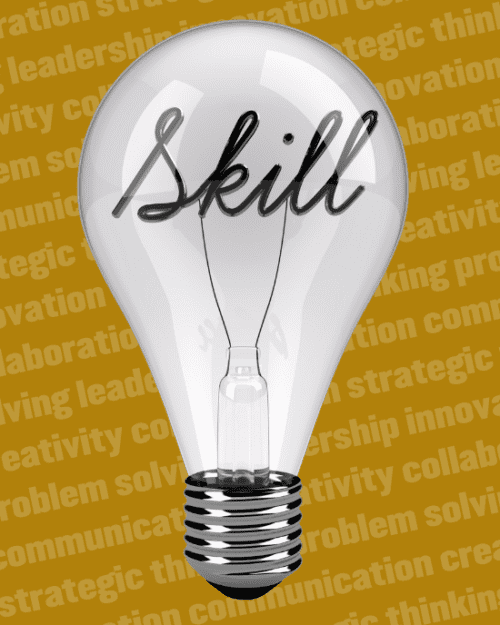One Thing Is Certain, Soft Skills Matter

It’s no secret that the world around us was already changing – fast. And then COVID-19 hit. Crisis, chaos, disruption, uncertainty. These are unique times we are in, but have no doubt, we will get through this. Societies and economies have survived before and will survive once again.
However, there will be lasting changes across most, if not all, industries. It is more important than ever for the workforce to keep up with the job skills needed to lead their organizations down a path of growth. From corporations to nonprofits, small businesses to state governments, now is the time to double down on the innovation skills people need to compete today and into the future.
Far too often, this conversation of “innovation” or 21st century skills is limited to just technical or hard skills. It is true that skills like coding or computer programming are increasing in importance and in the volume of roles where they are required, but not all jobs require mastery of these skills. It is mastery of soft innovation skills that will do more to increase the people asset in your organization.
“While the leaders of the future won’t necessarily need to be the ones writing code, experts suggest that they will at least be required to demonstrate a robust understanding of the capabilities, applications and future potential of emerging technologies,” says freelance technology journalist Jared Lindzon.
In a column for Fast Company magazine, Lindzon goes on to suggest that skills needed to lead the company of the future include: the ability to think of new solutions, being comfortable with chaos, high emotional intelligence and the ability to work with people and technology together. In other words, people need to become more creative problem solvers. This premise is supported by several research studies.
A 2016 Job Skills Report by Bloomberg asked 1,251 job recruiters at 547 companies about the skills they want in their professionals but can’t find. Four skills stood out as the sweet spot: communication skills, strategic thinking, leadership skills, and creative problem-solving.
In 2016, the World Economic Forum published The Future of Jobs report. Findings are based on an extensive survey of chief human resource officers and other senior talent and strategy executives from 371 leading global employers. According to their report, the top four skills needed for 2020 are complex problem solving, critical thinking, creativity and people management.
Finally, “Critical Skills Surveys” conducted by the American Management Association in 2010 and 2012 identified four critical skills that 74.6 percent of managers surveyed said will be important for their organizations into the future. The “Critical 4C Skills”: critical thinking and problem solving, effective communication, collaboration and team building, and creativity and innovation.
Despite slight differences from report to report, necessary skills for the future can be grouped together as “innovation skills.” Successful innovation requires creative problem solving, leadership, strategic thinking and effective communication.
Technical skills are important, and we do need more students and employees developing an understanding and mastery in these areas. However, innovation at heart comes down to creativity and problem solving. These strategic, creative and people skills will be the ones that drive growth and pull us out of these uncertain times.
This post was originally written for the Center for Creative Solutions’ 2020 World Creativity & Innovation Week program.
Author: Jason Williams – Assistant Director, The Society of Innovators at Purdue Northwest